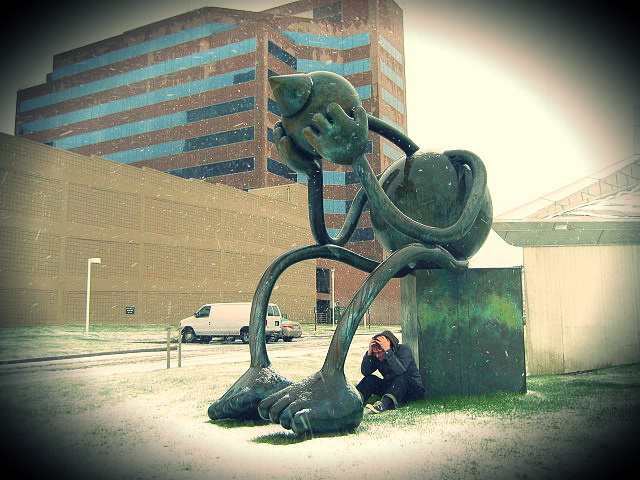Self-esteem refers to what you think and feel for yourself. These are thoughts and feelings that a person can have, whether positive, negative, or mixed, about oneself. The more positive thoughts and feelings we develop and nourish, the greater the self-esteem and, on the opposite side, the more negative these thoughts and feelings, the lower the self-esteem. As simple as that.
This post contains Amazon affiliate links, meaning I may earn a small commission if you purchase through my links, at no extra cost to you. Note: We aim to provide accurate product links, but some may occasionally expire or become unavailable. If this happens, please search directly on Amazon for the product or a suitable alternative.
It is important to feel good about yourself because it gives you the feeling of having better control of your life. It can also help a person feel satisfied in a relationship.
With a positive self-identity, a person can set realistic expectations and pursue goals. On the other hand, having a negative self-perception can result in a distorted view of oneself, which leads to a lack of self-confidence, a poor sense of purpose, and even depression.
More recently, low self-esteem has been one of the most popular and frequently cited psychological explanations for social and behavioral problems. Inspired by social commentators and media opinion leaders, people have agreed to recognize that a limited sense of self-confidence is the root of almost all social and personal problems associated with substance abuse and drug abuse, crime, poverty, and business failure.
People who have low self-esteem depend a lot on their daily performance. Positive external experience and encouragement help them fight the negative feelings they have about themselves. These negative feelings are often a concern for people with low self-esteem. In many situations, self-sabotage, and feelings of not being good enough, serve as a form of torture to those who do not have enough confidence in themselves and in what they can do.
There are many known ways to improve self-esteem. One of them is to develop self-confidence; it may be useful to practice the following personal improvement techniques and strategies:
Reject internal criticism that continues to send self-destructive messages;
Practice the art of feeding oneself with good thoughts, sounds, and visuals. What you listen to, as well as what you read and watch on television can contribute to your overall state of mind.
Get help and support from people close to you.
The first and most important step to increase self-esteem is to tell the inner voice to quiet down. That inner voice can say negative things about you. When you take command of that inner voice, things change, you have to congratulate yourself. Rejecting the inner voice that continues to criticize must be done regularly. However, this is just one step to develop self-esteem. But remember, a step forward is still a step.
The second step to achieve healthy self-esteem is to treat yourself with kindness. It is an important part of this step is to begin treating yourself as a worthy person.
Find people who make you feel good.
Remember to choose your friends, so why not choose people who think you’re great?
In addition, individual and group counseling can help improve self-esteem. Such therapy can include assertiveness training, communication skills, and learn to recognize and understand one’s own emotional responses to others. Therapy can also explore the early and later experiences that contributed to their low self-esteem. Group therapy is particularly effective in helping to build trust, build relationships, and foster a sense of belonging, which is important for developing self-esteem.
Low self-confidence and low self-esteem are often the results of bad experiences or bad choices in the past. Therefore, you must begin to consider yourself a worthy person. Develop yourself enough to challenge negative experiences in the past by focusing on moving forward instead and begin to love yourself.
Try to change yourself from within and show the outside world that you are a wonderful, competent, and kind person. Learning to develop higher self-esteem is a good way to start, but always remember and believe that you can do it, you deserve it, and you will get there. A positive attitude is a right attitude.
Leave past things where they belong…In the past
One very common cause of unhappiness and low self-esteem is the tendency to always reflect on bad experiences from the past.
In many cases, people either feel sorry for themselves or lament ever being a part of those events. Yet, it is much more progressive to look at the past as a lesson and not as a regret.
Admittedly, it is not an easy thing to do, especially when the events were painful, terribly embarrassing or resulted in permanent injuries that live on as a reminder.
But at some point, reality has to be faced and it demands that the past is accepted as it is.
That is because it simply can never be changed to suit anyone’s wishes. What happened, no matter how bad it could have been, remains a permanent part of one’s history; without exception. But on the flip side, it can easily be used to shape a brighter future.
However, it is naïve to try to forget and bury the past. Rather, it is important to embrace it and accept it as an important part of life history which can help avoid similar events. It is from past events that people have always drawn invaluable lessons.
Famous inventors, for example, drew inspiration from what everyone else perceived as failures. To the inventor, each failure’ was simply a new discovery of one more thing to avoid next time. And they viewed each succeeding attempt on their invention as a step closer to success, owing to the wisdom earned from such past failures’.
On the contrary, looking back on the past with regret induces great fear, which literally stops a person from progressing in life. If everyone stopped attempting new things because they failed dismally before, the world would still be traveling on horseback to this day. And all the scientific discoveries made over the centuries would never have come to pass.
That’s just how devastating regret can be to humankind!
The strongest single factor in prosperity consciousness is self-esteem: believing you can do it, believing you deserve it, believing you will get it.
– Jerry Gillies
When the past is accepted as it is (the past!), there will certainly be much less fear anger, sorrow or animosity going around. Life is a unique day by day experience. Nobody ever gets the chance to rehearse for it.
As such, nobody should hold on to; and live in the shame, blame, hurt or regret of the past. It should simply be looked back upon as a reference point from which valuable life lessons are drawn, purely for the benefit of the future.
The moment a person treats the past in this way, he or she opens themselves up to deeper peace of mind and self-acceptance. With self-acceptance comes higher self-esteem, more happiness and overall well-being.
Regret has no place in the mind of such a person; it simply cannot co-exist with such positive and forward-looking personality traits.
Learn to develop a more positive and optimistic mindset and life…
Photo credit: cometstarmoon









